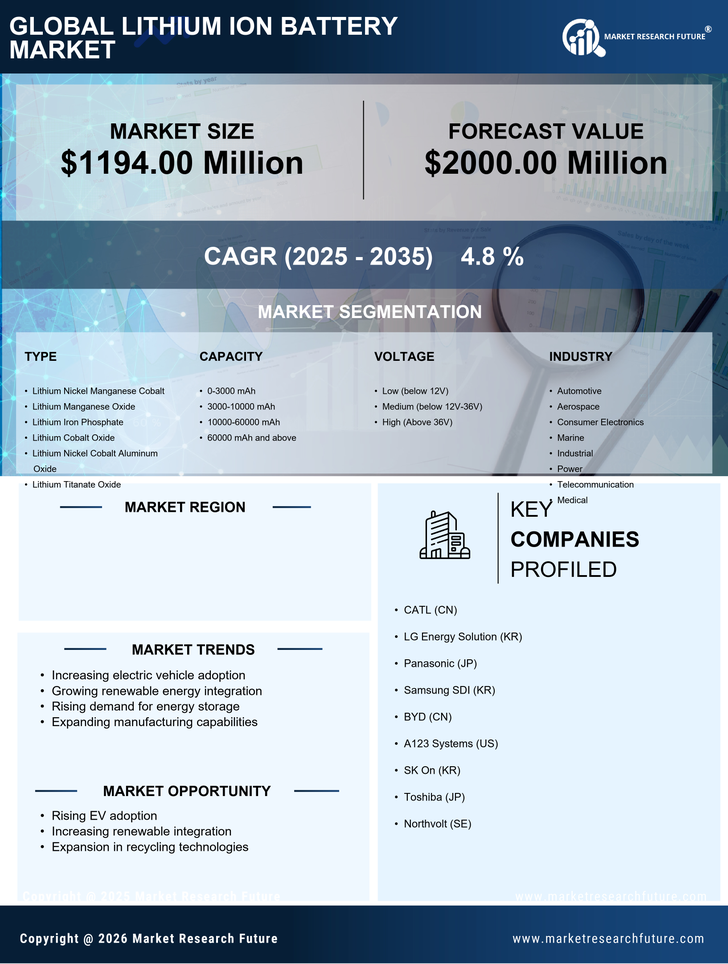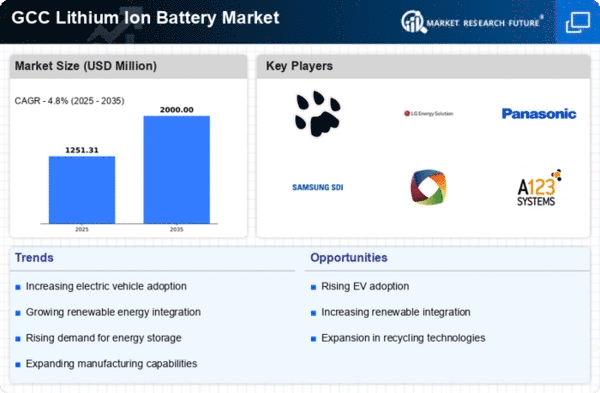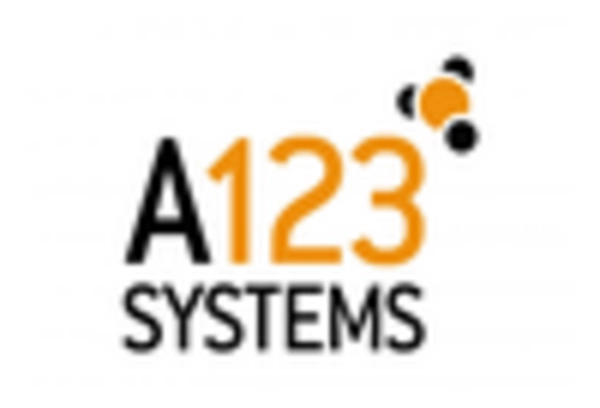Surge in Renewable Energy Adoption
The increasing emphasis on renewable energy sources in the GCC region is driving the lithium ion-battery market. As countries like Saudi Arabia and the UAE invest heavily in solar and wind energy, the need for efficient energy storage solutions becomes paramount. Lithium ion batteries are favored for their high energy density and efficiency, making them ideal for storing renewable energy. The market is projected to grow as these countries aim to generate 50% of their energy from renewables by 2030. This transition not only supports sustainability goals but also enhances energy security, thereby propelling the demand for lithium ion batteries in various applications, including grid storage and electric vehicles.
Government Initiatives and Policies
Government policies in the GCC region are increasingly favoring the adoption of lithium ion batteries. Initiatives aimed at reducing carbon emissions and promoting electric mobility are gaining traction. For instance, the UAE's Energy Strategy 2050 aims to increase the contribution of clean energy to 50% of the total energy mix. Such policies create a conducive environment for the lithium ion-battery market, encouraging investments in research and development. Furthermore, subsidies and incentives for electric vehicle purchases are likely to stimulate market growth. The alignment of government objectives with market needs suggests a robust future for the lithium ion-battery market in the region.
Growing Consumer Electronics Market
The expansion of the consumer electronics market in the GCC region is a key driver for the lithium ion-battery market. With the proliferation of smartphones, laptops, and wearable devices, the demand for compact and efficient batteries is surging. The consumer electronics sector is projected to grow at a CAGR of over 10% in the coming years, further fueling the need for lithium ion batteries. As manufacturers seek to enhance device performance and battery life, the reliance on lithium ion technology is expected to increase. This trend indicates a promising outlook for the lithium ion-battery market, as it aligns with consumer preferences for high-performance electronic devices.
Expansion of Electric Public Transportation
The shift towards electric public transportation systems in the GCC region is likely to bolster the lithium ion-battery market. Cities such as Dubai and Riyadh are investing in electric buses and trains to reduce urban pollution and enhance public transport efficiency. The integration of lithium ion batteries in these systems is crucial, as they provide the necessary power and range for electric vehicles. With the GCC governments aiming to increase the share of electric public transport to 30% by 2030, the demand for lithium ion batteries is expected to rise significantly. This transition not only supports environmental goals but also enhances the overall efficiency of urban mobility.
Technological Innovations in Battery Production
Technological advancements in battery production are significantly impacting the lithium ion-battery market. Innovations such as solid-state batteries and improved manufacturing processes are enhancing battery performance and safety. The GCC region is witnessing investments in R&D to develop next-generation batteries that offer higher energy densities and faster charging times. For example, the introduction of advanced materials like silicon anodes could potentially increase battery capacity by up to 30%. These innovations not only improve the efficiency of lithium ion batteries but also reduce costs, making them more accessible for various applications, including consumer electronics and electric vehicles.
















